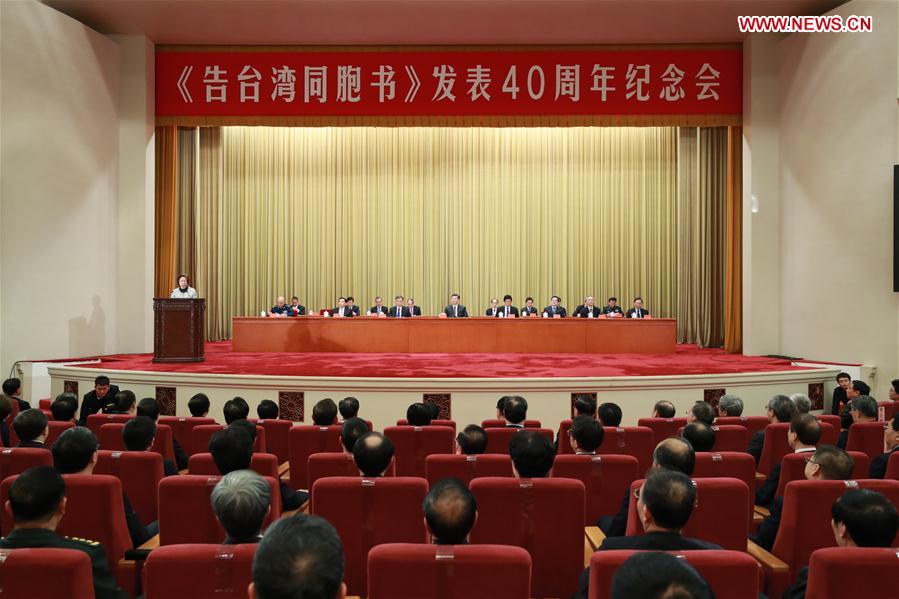Xi offers practical means to inevitable reunification: China Daily editorial


The message to compatriots in Taiwan issued by Beijing on Jan 1, 1979, made clear the question of Taiwan is an internal affair and set out the fundamental policy of striving for peaceful reunification.
In his speech on Wednesday to commemorate the 40th anniversary of that message, President Xi Jinping made clear those two points still hold true today, while adding substance to how that inevitable outcome should be achieved.
China must and will be united, he said, proposing political negotiation and democratic consultation to work out a systematic arrangement for the peaceful development of the cross-Straits relationship.
The Chinese mainland is willing to hold talks with any political parties or organizations in Taiwan on political issues, he said, so long as it upholds the one-China principle.
And, taking into account the reality of the different development paths of the island and mainland over the years, he put forward "one country, two systems" as the most practical means for the realization of reunification, stating that the different political systems on either side of the Straits were not a barrier to reunification.
But he warned that neither is it an excuse for the island's secession from the motherland.
Xi issued a stark caution to the current independence-minded administration of Tsai Ing-wen on the island — as well as those foreign forces that have been emboldening her in her secessionist pursuit — stating that the mainland would make no promise to give up the use of military force and it reserved the option of taking "all necessary means" against Taiwan separatist activities.
That such a caveat was necessary was evidenced by Tsai's immediate rejection of Xi's proposals and categorical refusal to accept there is only one China.
Taiwan compatriots should realize from what Xi said in his speech that the mainland is sincere and resolute in seeking the peaceful reunification of Taiwan, and that their rights and interests will be fully guaranteed.
They should also pay heed to how Tsai, in her refusal to accept reality, is willing to let them pay the price while she and those similarly inclined negligently seek to live out a fantasy.
That her party took a beating in the recent local elections should have been a wake-up call for them to pull their heads out of the clouds. Instead, puffed up by tenuous reassurances of support, they persist in trying to promote a historical fallacy.
The reunification of Taiwan with the mainland is in the interests of the Chinese people on both sides of the Straits. Anyone or any forces seeking to prevent this are trying to prolong a feud that need not be handed down from generation to generation.


































